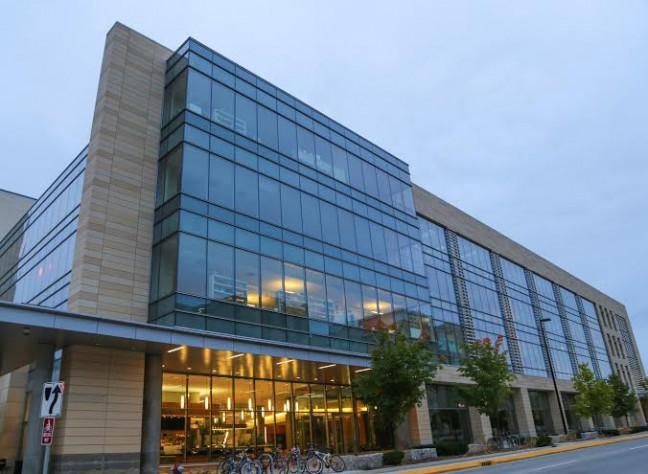PBS “Eons” co-host and 2024 University of Wisconsin Science Journalist in Residence Kallie Moore presents at the Crossroads of Ideas lecture “Can You Dig It?” on March 13 at the Institute of Discovery in Madison, Wisconsin.
The hugely popular “Eons” YouTube channel answers questions about evolutionary topics such as “Why do giraffes have long necks?” or “How did deer descend from tusked animals,” Moore said.
To answer these questions in an engaging way to non-scientists, “Eons” staff must apply science communication practices to produce the show. According to Moore, science communication is sharing any science to a group of non-scientists.
“We [Eons] are not explaining, we are telling stories,” Moore said.
An important component of producing science content for entertainment is narrative, which uses storytelling to integrate all the facts of a specific subject area, Moore said.
‘UW Women In IT’ seeks to disrupt gender-based exclusion cycle through networking, community events
According to Moore, the thumbnail and first couple seconds of the video are the most important part of a video, so they must be engaging. On platforms like TikTok or YouTube shorts, people will only view a video for the first three seconds and if it’s not interesting, they scroll past it.
Ensuring that scientific information is entertaining but also factually accurate can be difficult, Moore said. “Eons” producers fact-check all the information and images in a video before it’s aired, to ensure their videos are not only entertaining, but credible too.
A tricky part of creating informational and entertaining content is the artistic diagrams and representations of extinct organisms and ecosystems, Moore said. Paleontology art, which depicts how now-extinct species may have looked, is a huge part of the production of “Eons” because it builds the evolutionary narrative for viewers.
“Eons” frequently works with paleo-artists to acquire these images, but they also source stock images for their videos. With increased prevalence of AI generated images over the past couple years, it has become difficult to find real images from stock sites.
This becomes problematic because AI generated images can depict inaccurate representations of what extinct species may have looked like — degrading educational content and discrediting paleontology artists, Moore said.
When sharing historical evolutionary history, “Eons” is conscious of how to address problematic evolutionary scientists in the past, Moore said. Many scientists in the 19th and 20th century held scientific theories grounded in racism, and “Eons” is careful to consider the implications of upholding and sourcing historical and education information from these figures.
Hateful comments are a difficult aspect of working in science communication on social media, Moore said. During the beginning of the production of “Eons,” she received a lot of criticism about her appearance and presentation in the YouTube comments.
“You need tough skin, especially when you’re a woman,” Moore said.
Through these challenges, “Eons” has experienced great success on YouTube and TikTok platforms. “Eons” has 234 episodes and 2.89 million subscribers, Moore said.
The show has grown immensely since it started airing in 2017, and continues to grow as it educates viewers about the world of paleontology using stories.
“The goal [of ‘Eons’] is for enjoyment. And maybe, by accident, learn something,” Moore said.












